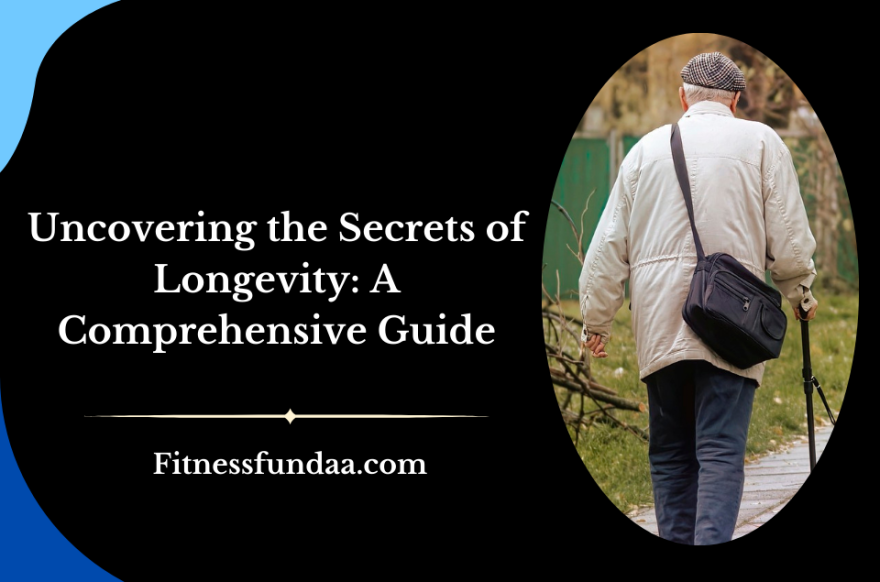The idea of living a long and fulfilling life is really important in today’s world. There are many factors that make this concept significant for both communities and individuals. We can see changes happening in society, like more older people, which makes it necessary to look closely at how we can deal with the challenges and opportunities that come with this shift in demographics.
From an economic point of view, thinking about living longer means we have to make changes in how we plan for retirement, set up social security, and make healthcare policies. These changes are important to take care of an aging workforce and make sure our welfare systems can keep going. Instead of just trying to make life last longer, research on longevity is also trying to make sure those extra years are good ones. This means focusing on preventing problems, finding diseases early, and treating conditions related to aging. Longevity research is also helping us deal with big global health issues, making societies healthier overall.
In a nutshell, the study of longevity is involved in many parts of our modern society, like how we run our economies, set up our healthcare, and even how our cultures and societies work. It gives us important information on how to handle the challenges that come with having more older people. This leads societies to look for ways not only to make life last longer but also to make sure those added years are healthy and fulfilling.
Looking at it from an economic angle, having more older people is a big deal. Countries with lots of elderly folks have to figure out how to support social systems like pensions and healthcare. This situation sparks a global interest in ways to not just extend life but also to promote well-being in general. This economic perspective lines up with the universal wish for not just a longer life but one that’s full of health and activity, making sure people can keep contributing to society.
On an individual level, there’s a widespread desire for a long and satisfying life. Advances in healthcare, nutrition, and lifestyle sciences have given us hope that we can manage aging and even prevent or delay age-related problems. This hope, combined with a growing focus on overall well-being, is inspiring people all over the world to learn and adopt habits that support a long and healthy life.
What’s more, the global interest in longevity is a response to breakthroughs in medical science and technology. Discoveries in genetic research, regenerative medicine, and personalized healthcare are showing us new ways to understand the biology of aging and find ways to live healthier for longer. This shared fascination highlights our common human tendency not only to want a longer life but also to make sure those extra years are full of energy and overall well-being.
In a larger sense, longevity isn’t just about living longer; it’s about taking care of physical, mental, and social well-being all at once. It’s about having a life that’s not just extended but also enriched in every way possible.
Genetics and Longevity:
An in-depth look at genetic factors linked to longevity entails pinpointing specific genes and variations associated with extended and healthier lives. Studies focus on centenarians and those who are surpassing average life expectancy to identify common genetic traits, including those related to cellular repair, immune function, and resistance to age-related diseases. This exploration provides insights into potential genetic determinants of a longer lifespan, guiding interventions for healthy aging.
Lifestyle Choices:
Nourishing Your Lifelong Journey:
Envision your body as a perpetual expedition. A well-rounded diet serves as the sustenance, much like selecting the finest ingredients for an enduring adventure. Picture nutrients as seasoned travelers, each contributing their unique essence to the expedition, ensuring a sustained and robust sojourn.
Sustaining Vigor for the Ongoing Odyssey:
Life is an unfolding odyssey, and consistent physical activity becomes the cornerstone of fortitude. Whether it’s a brisk walk, a jog, or engaging in regular workouts, maintaining activity levels is comparable to fortifying your vessel for the ceaseless voyage. It’s the daily commitment that fortifies your vessel, poised to navigate the uncharted waters of existence.
Replenishing Vitality Through Quality Sleep:
Envisage sleep as the nightly restoration of your vital reservoir. As you enter the realm of slumber, your body undergoes a transformative rejuvenation, akin to a nightly refurbishment. This isn’t merely a period of rest; it’s an essential ritual ensuring you arise rejuvenated, ready to embark on a new day’s unfolding narrative.
Steering Serenely Through Life’s Storms:
Life’s journey can be tempestuous, with stress acting as turbulent waves. Proficient stress management is comparable to acquiring adept seamanship skills. Techniques like mindfulness and periodic respites serve as your navigational instruments, empowering you to navigate the undulating seas of stress with composure.
Eliminating Disharmonious Habits for Prolonged Harmony:
Conceive unhealthy habits as dissonant chords in life’s symphony. Smoking and excessive alcohol intake are like discordant notes disrupting the overall harmony. Abandoning these habits is analogous to refining the ensemble, creating a symphony of health where the virtuosity of a prolonged, vibrant life becomes the prevailing theme.
Medical Advances:
Advancements Unveiling the Aging Puzzle:
Recent progress in medical exploration has brought greater clarity to the complexities of aging. Scientists, delving into the finer details at cellular and molecular levels, have uncovered fresh perspectives. These revelations provide potential avenues for interventions that not only slow down but potentially reverse certain aspects of the aging process, offering a route to an extended and healthier lifespan.
Journeying into Regenerative Medicine’s Frontier:
Regenerative medicine is pushing boundaries in the pursuit of a prolonged life. The emphasis extends beyond treating age-related ailments to tapping into the body’s intrinsic regenerative capacities. This frontier holds the potential not only for healing but revitalizing tissues and organs, signaling a potential shift towards a lengthier, more vibrant existence.
The Renaissance of Health Technology: Cultivating an Extended Healthspan:
Healthcare is experiencing a technological renaissance, with innovations set to redefine the trajectory toward a longer and healthier life. Wearable devices, telemedicine platforms, and health-tracking applications lead the charge. Empowering individuals to actively participate in their health, these technologies enable early identification of issues, personalized interventions, and a forward-thinking approach to well-being, contributing to an elongated healthspan.
Longevity, vital in today’s context, involves grappling with demographic shifts, especially the growing elderly population. This necessitates recalibrations in retirement planning, social security, and healthcare policies. Beyond prolonging life, research focuses on enhancing the quality of extended years, emphasizing preventive measures, early disease detection, and age-related treatments.
Socially, longer life expectancy reshapes family structures and societal norms. Economically, it prompts adjustments in welfare systems. Additionally, scientific and technological advancements contribute not just to longer life but improved well-being. Cultural beliefs and societal expectations are integral, requiring nuanced understanding.
Faqs Answered
Why is longevity research important in today’s society?
– Longevity research is crucial as it addresses the challenges posed by an aging population, influencing healthcare, economic structures, cultural norms, and societal dynamics.
How does longevity research impact economic frameworks?
– An aging population necessitates adjustments in retirement planning, social security, and healthcare policies. Longevity research contributes to reshaping economic structures to support an aging workforce.
What is the role of preventive measures in longevity research?
– Preventive healthcare measures are essential for early disease detection, promoting overall well-being, and reducing the strain on healthcare systems, playing a pivotal role in extending a healthy lifespan.
How does longevity research affect societal norms and family structures?
– Longer life expectancy reshapes family dynamics, influencing intergenerational relationships, caregiving structures, life planning, and societal expectations, impacting career trajectories and relationship dynamics.
What role do cultural beliefs play in the study of longevity?
– Cultural nuances are significant in shaping perceptions of and celebrations related to longevity. Understanding diverse cultural beliefs fosters inclusive and supportive environments for an aging population.
How do technological advancements contribute to longevity research?
– Technological innovations, such as wearable devices and health-tracking apps, enable early detection of health issues, personalized interventions, and a proactive approach to healthcare, improving overall well-being during the aging process.

